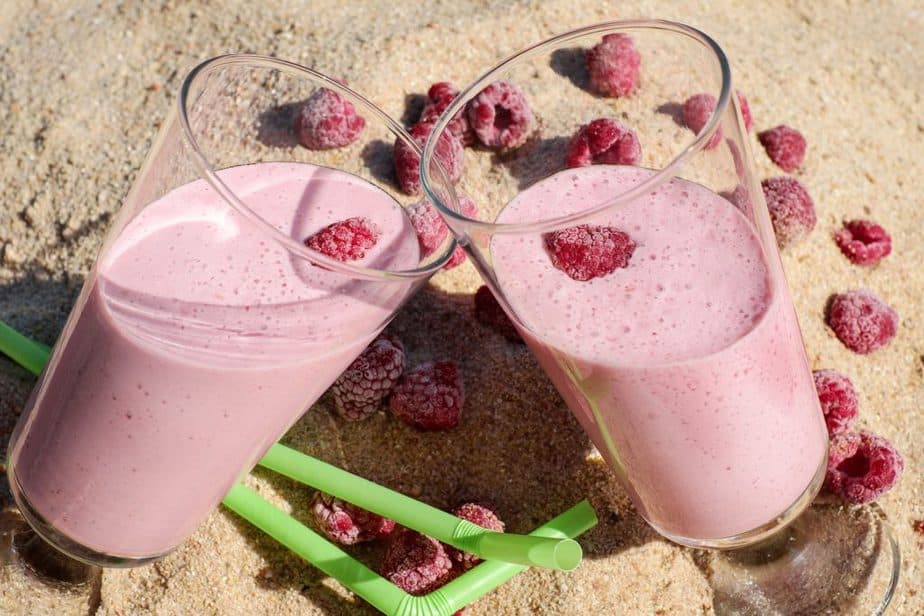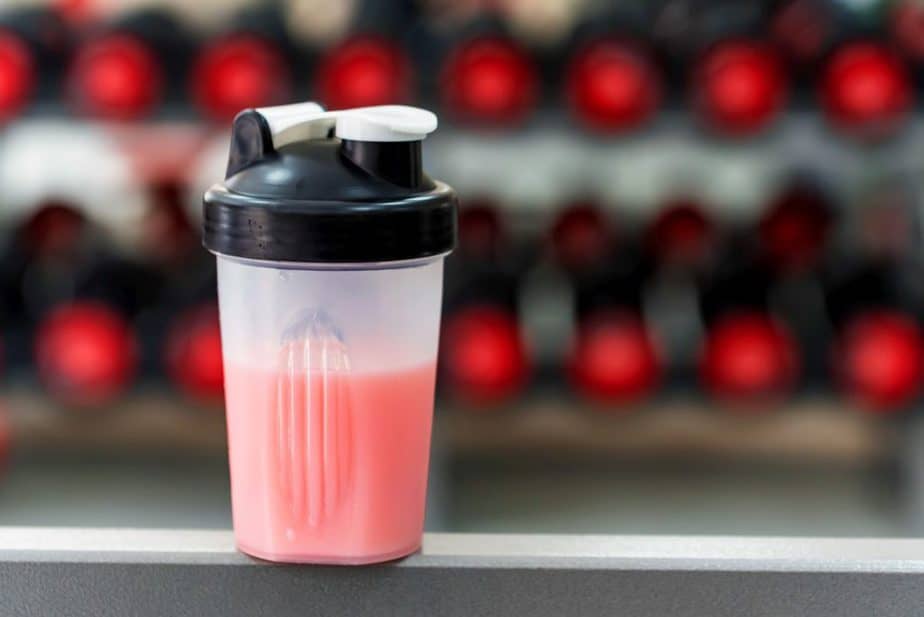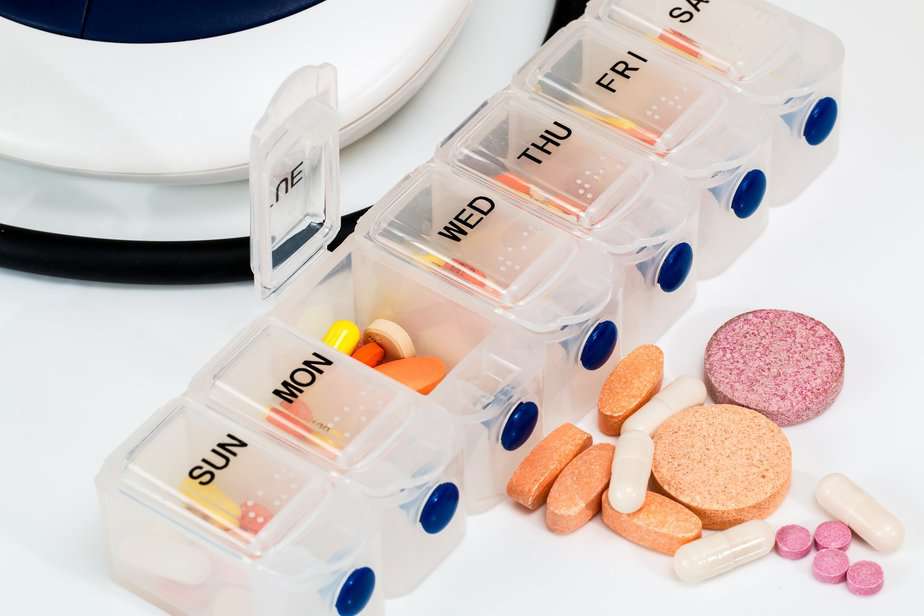You’re ready to have the best workout of your life. You’re pumped up, focused, driven and can’t wait to step foot into the gym. It’s a pretty great feeling, isn’t it?
But what about those off days when your motivation to work out and energy seem nonexistent?
Like the engine in a car, if you don’t give your body (and brain) quality fuel, you won’t be able perform optimally in the gym. You can only push yourself so hard when you’re running on fumes.
Specifically, your goal before a workout is to prime an anabolic environment in your body. By providing your cells with the energy and nutrients they need, your athletic and mental performance will be at their peak, allowing for more efficient and effective workouts.
Hence, pre-workout nutrition is crucial for any fitness enthusiast. But one key aspect of the pre-workout timeframe often goes overlooked: pre-workout supplementation. Taking a pre-workout supplement shortly before you start exercising can make all the difference in your workouts.
So, what do pre-workout supplements do, exactly? Which pre-workout ingredients are best? This guide will teach you everything from A to Z about the pre-workout supplement niche so you can take your training to the next level.
Here’s the Problem

Sitting down for a healthy meal right before a workout isn’t ideal if it is not balanced. In fact, it can actually hamper your performance in the gym if you’re not careful.
You don’t want to weigh yourself down or get that “food coma” feeling before a workout. It’s better to be light and primed, and ready to go. The problem is, most people do not put enough attention into the quality of the fuel they are consuming prior to a workout. That could be costing you — big time. Pre-workout nutrition is not something to take lightly.
What does subpar pre-workout nutrition lead to? Well, here’s a short list:
- Lack of energy
- Mood swings and less desire to push yourself physically
- Feeling weak and less vigorous during your workout
- Every rep of weights feels heavier than it normally does
- You’re completely exhausted afterward
On the contrary, proper pre-workout nutrition can help by ensuring:
- You feel powerful with every rep and stride
- You hit new goals and personal bests
- You perform better during every single workout
- You don’t feel as exhausted afterwards
Regardless if you’re in the gym five, six, or even seven days a week — or if this is your first real push to get fit — the right nutrients give your mind and body the necessary fuel to work harder, better, and more efficiently. With every exercise, you’ll accomplish more.
While figuring out what to eat for a pre-workout meal is important, most people struggle to know which nutrients and ingredients to look for when buying a pre-workout supplement. Trust us, we can empathize. The supplement market is extremely competitive, with so many promises and claims of how each product is “the best.” Naturally, it’s tough to decipher hype from facts to figure out which pre-workout supplement to use.
Let’s bust through those myths by focusing on what research has to say about the best pre-workout supplements.
What Do Pre-Workout Supplements Do for Your Body?

There are a multitude of choices when it comes to pre-workout supplements. As you begin to compare them, be mindful of the differences and similarities in their claims as well as their ingredient profiles. In a few minutes, we’ll get into what makes these supplements effective.
First, you need to know what a pre-workout supplement is designed to do for your body. Depending on the ingredients and nutrients in the formula, a pre-workout may help:
- Improve your overall performance during a workout, such as high-intensity interval training (HIIT) or weight lifting
- Improve your strength during resistance training
- Support muscle protein synthesis — supporting recovery during exercise
- Bolster endurance and stamina — meaning you can push yourself harder and longer
- Boost metabolic rate — allowing you to burn fat faster
- Enhance focus and concentration
- Reduce muscle tissue breakdown during your workout
- Establish the ideal hormonal environment for the best possible workout
No matter what type of workout you are doing, or even if you are just heading into a tough day at work, these benefits are going to allow your mind and body to function optimally.
In a fitness context, a pre-workout supplement is mostly designed to get your body to perform at peak capacity. This is why these supplements have become staples in many gym-goers’ cupboards.
When choosing any type of pre-workout supplement, you want to find a formula that accomplishes three key goals:
1: Improves Muscular Endurance and Strength
Any workout is successful if you can achieve the goals you set. If it seems like your workout never really meets the goals you set for yourself, even though you know these are achievable goals, it could mean your muscular endurance needs a boost. A quality pre-workout supplement can help do the trick by reducing muscle fatigue during your gym or home workout. In fact, research suggests that pre-workout supplements help active individuals train harder and longer.
If you fail to nourish yourself properly before you start working up a sweat, your muscles will not have the fuel they need to perform optimally.
2: Pump and Vasodilation
One crucial area that pre-workout formulas can assist with is muscle pump. In short, muscle pump refers to the transient increase in blood flow to muscles that you’re training, which expands those muscles and makes them feel “full” or “pumped up.”
Vasodilation — the expansion of blood vessels — is what creates a more intense muscle pump when you’re working out. Better yet, having more blood flowing to your muscle tissue leads to more nutrient and oxygen delivery, thereby supporting strength and recovery.
Your pre-workout supplement should provide some nitric oxide (NO) boosters, such as L-arginine and L-citrulline, to facilitate muscle pumps. NO boosters are a key component of any pre-workout formula, especially if you want to capitalize on the inherent vasodilating properties of exercise.
3: Energy and Mental Focus
A third area that pre-workout supplements can enhance is your overall energy and mental focus. Nutrients are not only important for your muscle cells but also for your brain cells (i.e., neurons).
Frankly, your physical performance is largely dictated by your mental state, so having the right mindset is critical to maximizing your workouts. Without your brain functioning optimally, your muscles won’t either. Fatigue is just as much of a mental phenomenon as it is a physical one. When your nervous system — which includes the brain and spinal cord — is shot, your muscles won’t fire as forcefully. Thankfully, there are pre-workout ingredients — such as caffeine, L-theanine, and green tea extract — that can help keep your mental focus and energy high throughout your workout.
Making a Pre-Workout Your Own

Depending on what’s important to you, you may want to tailor your pre-workout supplement selection. For example, some people may want a pre-workout that supports strength and power. In this case, things like creatine monohydrate and branched-chain amino acids (BCAAs) would be some of the best ingredients to look for.
By the same token, some people might want ingredients that boost stamina and blood flow. In reality, most pre-workout formulas accommodate more than just one specific goal. Nonetheless, you can certainly make your own pre-workout by buying individual ingredients separately and combining them.
Stimulant and Stimulant-Free Pre-Workout Supplements
Many pre-workouts include stimulants, particularly caffeine; others don’t. The good news is that stimulant-free pre-workouts can still be highly effective. If you are sensitive to stimulants like caffeine, or you hit the gym later in the evening, it’s worth looking into a stimulant-free formula.
The last thing you want is to slam a scoop of pre-workout supplement that keeps you up all night or feeling jittery as you try to sleep. Sleep is imperative for recovery, so be mindful about taking caffeine and other stimulant-based supplements if you exercise close to bedtime.
As with any dietary supplement, read the label so you know what you’re putting in your body.

What Needs to Be in a Pre-Workout Supplement?
Now that you know the basics of pre-workouts, the next step is to understand what the different ingredients and nutrients in these supplements actually do. Note that there is no single pre-workout supplement that is going to be perfect for everyone. You will want to find the right formula for you and also take into account how much you’re willing to spend on a pre-workout.
Don’t let branding or flashy product labels get in the way here. You should always look to see what’s in the formula when you’re browsing the supplement aisle or shopping online. Below, you’ll find a breakdown of what we suggest looking for in pre-workout supplements.
Supplement Ingredients That Boost Strength and Power

Let’s first talk about what goes into a pre-workout when your primary goal is to increase strength and power during your workout. The ingredients below will help you to lift more and keep progressing over time.
Creatine Monohydrate
Creatine monohydrate is arguably the most crucial and readily accessible supplement ingredient on the market for athletes and gym-goers. It is by far the most researched sports supplement to date, with numerous studies backing its strength-boosting properties.
So, why is creatine important for active individuals? Well, your muscle cells use a molecule known as adenosine triphosphate, or ATP, to carry out contractions. However, your muscles can only store so much ATP at a time. This is where creatine comes into play.
Creatine binds to free phosphate molecules and carries them back to the adenosine diphosphate (ADP) that results from ATP being used for energy, thus regenerating ATP. The result: Your muscles have a reservoir of high-octane energy ready to tap into for carrying out explosive contractions, such as sprinting, jumping, and squatting.
If your goal is to build strength and explosiveness, creatine is a must-have ingredient in your pre-workout supplement.
Note that there are a number of forms of creatine out there, many of which remain unproven. Focus on creatine monohydrate — this is the only form that has a robust body of evidence behind it.
Taurine
The next ingredient to help with strength and power is taurine, an amino acid that the body naturally produces in small amounts. Unlike the essential amino acids your body uses for creating new muscle proteins, taurine is not incorporated into proteins. Instead, it has unique roles as a performance-enhancing nutrient through distinct cellular processes.
Notably, taurine facilitates muscle cell contraction, expands blood vessels, supports fluid balance, and has strong antioxidants properties throughout the nervous system. It’s not entirely clear how taurine promotes athletic performance, but it ultimately seems to be through protecting cells from stress-related damage. Remember, exercise is a form of stress, particularly for your skeletal muscles, heart, and central nervous system. Therefore, taking taurine before your workout can help fortify against fatigue and keep your strength up when you need it most.
It’s often recommended to consume 1 to 2 grams of taurine about 20 to 30 minutes before exercise. Thankfully, taurine is a very common pre-workout ingredient, so you shouldn’t have much trouble finding a formula with this amino acid.
Supplements Designed for Muscle Growth

The next category of pre-workout ingredients have to do with building muscle. The goal with pre-workouts is to increase and optimize the anabolic effects of every training session, allowing your muscles to recover and grow more efficiently. So, if you’re lifting weights in hopes of seeing muscle growth, these are the ingredients you want in a pre-workout supplement:
BCAAs
Branched-chain amino acids, or simply BCAAs, are a group of three structurally similar essential amino acids: L-leucine, L-isoleucine, and L-valine. These particular essential amino acids are critical for initiating muscle protein synthesis — the physiological process that builds new muscle tissue. OK, science jargon aside, what we’re really trying to say is BCAAs are like the catalyst for muscle growth.
Moreover, when you take BCAAs prior to your workouts, they help reduce muscle tissue breakdown. BCAAs are a viable energy source for muscle tissue during long bouts of exercise, so you get the best of both worlds, so to speak. A higher ratio of muscle protein synthesis to muscle protein breakdown translates to greater muscle growth.
Some research also suggests that taking BCAAs before a workout may boost testosterone levels post workout. BCAAs enhance insulin sensitivity as well, which is conducive to muscle growth and improving body composition.
In short, taking BCAAs pre-workout gives your body the amino acids necessary to mitigate muscle protein breakdown and facilitate muscle growth.
It is possible to get the benefits of BCAAs from taking essential amino acid (EAA) blends. They contain the three BCAAs we’ve discussed as well as the other six essential amino acids your body requires for creating new muscle proteins.
Supplements Designed for Energy and Focus Benefits

There’s no doubt that energy is critical to success during any training session. We’ve all been through workouts where every second seems to be an eternity and you just don’t have that usual pep in your step. The good news: Pre-workouts can give you the necessary jolt so you don’t have those “blah” days in the gym anymore.
Here are some of the best energy-boosting and focus-enhancing ingredients to look for in a pre-workout supplement:
Caffeine
Caffeine is the most widely consumed stimulant across the globe. It’s also one of the most effective energy boosters and focus enhancers you can take before working up a sweat.
By stimulant, we mean that caffeine wakes up the central nervous system. In doing so, it amplifies various physiological processes, such as fatty acid metabolism, cognitive function, and muscular contraction.
In terms of pre-workout supplement, caffeine has much to offer. It bolsters both your physical and mental performance, allowing you to push yourself harder for longer. Working out is just as much a psychological challenge as it is a physical one, so it’s no surprise that caffeine has quite an extensive track record as a pre-workout ingredient.
Now, here’s an important misapprehension about caffeine. You most certainly can benefit from it but only when consuming a moderate amount. It is possible to take in too much caffeine. For example, if you are pounding caffeine before your workout, it can impair your coordination and reduce your performance through overstimulation. It’s always best to start with a modest dose, around 100 to 150 milligrams for most people, and slowly increase as necessary.
Since caffeine is a stimulant, you’ll want to be mindful of when you take it. It’s generally best to take a caffeine-containing pre-workout about 30 minutes prior to exercise. If you train late at night, caffeine might not be a wise decision, since it can interfere with sleep.
L-Tyrosine
Another important nutrient for pre-workout support of mental focus is tyrosine, a conditionally essential amino acid. L-tyrosine is an important precursor of several neurotransmitters, specifically dopamine and norepinephrine. Basically, L-tyrosine gives your brain the necessary building block for these neurotransmitters.
Dopamine and norepinephrine play crucial roles in feelings of motivation, alertness, and focus. Hence, L-tyrosine is an increasingly popular ingredient nowadays in pre-workout supplements.
L-Theanine
This amino acid is found in green tea leaves and is renowned for its synergistic effects with caffeine. Research shows that L-theanine augments the cognitive benefits of caffeine while also mitigating the undesirable side effects, such as jitters and feeling on edge. Ideally, look for a pre-workout supplement that provides a 2-to-1 ratio of L-theanine to caffeine.
Supplements That Boost Endurance

There’s another category of pre-workout ingredients to take into consideration: endurance boosters and blood-flow enhancers. These work to improve your stamina and cardiovascular function during exercise, both of which are key for just about every active individual.
When you have more endurance and better blood flow, you are able to maximize your workouts and your results. For these reasons, the ingredients below are worthy additions to any pre-workout regimen:
Beta-Alanine
Perhaps the best way to improve endurance is with a pre-workout containing the amino acid beta-alanine. This supplement ingredient increases carnosine levels in muscle tissue. (Carnosine is a dipeptide made of the amino acids histidine with beta-alanine.) In turn, carnosine buffers against the lactic acid and hydrogen ions that accumulate in muscle tissue during intense exercise. In nontechnical lingo, beta-alanine helps mitigate the burning sensation you may feel during high-intensity exercise.
Naturally, the more carnosine your muscles have, the less fatigued you’ll be during your workout. Aim for 2,000 to 4,000 milligrams of beta-alanine about 30 minutes before training. Note that the first few times you take beta-alanine, you may experience a tingling sensation in your skin. This is completely normal and innocuous, usually subsiding within 30 minutes or so.
L-Citrulline
A final supplement for endurance is the amino acid L-citrulline. This amino acid is not used for protein synthesis directly, but like taurine, it has vital roles in the human body. Notably, L-citrulline acts as a reservoir of L-arginine, which then goes on to create nitric oxide (NO). Recall that NO is pivotal to proper blood flow during exercise.
When you take L-citrulline before a workout, your blood vessels expand and relax, allowing nutrients and toxins to flow more freely to their destinations. As such, L-citrulline can improve both aerobic and anaerobic performance. In addition, L-citrulline has been shown to reduce muscle soreness, allowing you to recover quicker between sets and workouts.
For L-citrulline to be effective, you should take at least 2,000 milligrams about 20 to 30 minutes before your workout. Higher doses (up to 6,000 milligrams) may be even more effective.
Other Ingredients in Pre-Workout Supplements to Consider

A variety of other ingredients are found in pre-workout supplements, such as:
Yohimbine: This plant compound is increasingly popular in pre-workout supplements. It’s a constituent of Pausinystalia yohimbe that has adrenaline-like properties, making it a stimulant. Yohimbine may be suitable for those looking to burn body fat, but be aware that it can cause some adverse effects, notably heart palpitations and shortness of breath.
Betaine Anhydrous: This is a solid strength booster and muscle builder to add to your pre-workout stash. Betaine anhydrous is reputed for its hydrating properties, acting as protectant against cellular dehydration. It also helps improve ATP resynthesis during exercise, similar to creatine monohydrate.
Huperzine-A: Some pre-workout supplements include this constituent of Huperzia serrata. It’s suggested to enhance the effects of caffeine by blocking enzymes that metabolize it. Essentially, taking huperzine-A with caffeine offers even greater mental energy and focus.
Beetroot Extract: Many natural products will contain beetroot extract, which is a rich source of dietary nitrate. The body uses nitrate to create nitric oxide, which, as mentioned earlier, is responsible for expanding blood vessels so you can get a better pump in the gym.
How to Choose a Pre-Workout Supplement — It Goes Beyond the Hype

Now that you have a good idea of what should be in the best pre-workout supplement, it’s time to find the right product for you. The good news is there are many high-quality pre-workouts to choose from. The bad news is they all have their own unique blend of ingredients, so you’ll have to read the labels and determine which suits your needs.
Choose a product based on your individual goals and one that fits your budget. When it comes to supplements, you get what you pay for. However, this doesn’t mean that more expensive pre-workouts are inherently the best. In fact, there are plenty of affordable pre-workout supplements with premium formulas.
It is worth doing some basic research on each of the brands you are considering; the more you can learn about how they work, what’s in them, and what type of results others are having, the better. Here’s how to compare pre-workout supplements to each other:
Consumer Reviews
Word of mouth is the most practical way to get information about any type of pre-workout supplement. You want to know what success, or lack thereof, other people have had before buying a supplement.
Reviews are valuable because they give you insight into the way a person used the product as well as their result. The key is knowing which reviews to trust; not all reviews contain honest and credible information. Be wary of reviews written for compensation or for a free bottle of the supplement in question. Any time a brand pays a person to write a review, or gives them the product for free in exchange for a review, you have to be skeptical of what the reviewer says. Most companies, especially those that sell exclusively on Amazon, will do whatever it takes to get more positive feedback on their products. Thankfully, you can usually tell if a review is not authentic just by the overly enthusiastic verbiage used.
Remember, most people don’t go out of their way to review a product that they really enjoy; rather, they are more likely to leave a review for a product that they did not enjoy. So, in many ways, reading the negative reviews can be a useful gauge of a product.
If you use a product and do not like the outcome, make sure you do your part, too. Leave a review to provide the next person with a bit more information about it, and share your experiences with as much detail as possible.
Alignment with Your Goals
Another key factor to look for when choosing a pre-workout supplement is how well the product and its ingredients align with your specific goals. You want a product that is going to enhance your workout, not limit your success.
For example, if you are trying to reduce body fat, you probably should avoid pre-workouts that contain a lot of sugar. Instead, look for carb-free (zero-sugar) options. By the same token, a pre-workout with creatine monohydrate and beta-alanine is pertinent for those who lift weights regularly. Whatever your goals are, make sure your product matches them.
Watch Out for Harmful and Banned Substances
Unfortunately, dietary supplements are not regulated by the Food and Drug Administration (FDA). Hence, some manufacturers will push the limit by including dangerous stimulants in their pre-workout products. This gives the user a very big jolt of energy — and that could make you think it is working very well for you. The problem is, these products are not healthy, and you do not want them in your pre-workout.
One notorious ingredient you want to avoid is 1,3-dimethylamylamine, or 1,3-DMAA. Several years ago, it was commonly used in these types of products until several reports of harsh cardiovascular side effects surfaced. Since 2012, 1,3-DMAA has been banned by the FDA in supplements sold in the U.S., but that does not mean it isn’t still lurking in some pre-workout formulas. Again, the key is to buy from a supplement brand that has an honorable reputation so you know you’re not getting any harmful junk.
Consider the Cost Per Serving
You don’t have to spend much for a quality pre-workout supplement. What you should look at when comparing products is the cost and the number of servings you are getting from the product. From there, you can deduce the cost per serving, which ultimately dictates value.
Also, note the number of active ingredients you’re getting per serving. A pre-workout that costs $1.50 per 20-gram serving is a better value than a pre-workout that costs $1 per 10-gram serving (assuming the formulas are otherwise identical).
Remember that while high costs don’t always translate to superior quality, cheaper isn’t always the answer, either. It’s worth the extra cash to get a higher-quality product, especially when it comes to pre-workout supplements.
Look at the Quality of the Ingredients
You know what ingredients need to be in your pre-workout supplement, but also consider the quality of those ingredients. Sometimes, the best products are those that keep the ingredients simple and make it easy for you to see exactly what you are getting. If you do not understand the long list of ingredients, then that pre-workout may not be the best choice for you.
If you see an ingredient you don’t recognize, take a few minutes to research it. Never take a supplement unless you have a solid understanding of what the ingredients actually do.
Avoid Proprietary Blends
As you compare products, you may see some products that have a proprietary blend listed in the ingredient panel. This is a labeling tactic used to hide what’s really in them. You should be leery of pre-workouts that rely on proprietary blends. You need to know what you are putting into your body. If a supplement brand can’t detail precisely what you’re getting in its product, it doesn’t deserve your hard-earned money
Unfortunately, proprietary blends are commonly used to mask the true doses of key ingredients. Brands will claim that they do this to “protect their formula from competitors,” but the reality is they do this so their products are less expensive to make.
Are Pre-Workout Pills or Powders Best for You?

Is a pre-workout pill supplement the best option for you, or should you consider a powder form instead? Well, that’s up to you. Both pills and powders work, but there are some things to consider before choosing.
Pill benefits include:
- They are easy to carry with you. That means if you are stopping for a workout at an off time, you can pop a pill and be ready to go even if your plans change throughout the day.
- There’s no water needed to mix them. This makes pills a common go-to option in itself.
However, there are a few things you should consider about pills such as:
- They typically will have some type of inert binder or filler in them.
- Sometimes they’re hard to swallow. If you don’t like pills or have a hard time swallowing them, opt for a pre-workout powder instead.
- They take longer to absorb into your bloodstream. If you have more time on your hands, this may not be a big factor. For others, this is a deal breaker.
Powder benefits include:
- Larger doses without having to swallow tons of pills
- Rapidly absorbed. You can take your pre-workout 30 minutes before your workout or sooner and be ready to go.
- Most people find that powders are easier to take.
There are some drawbacks to powders, too. They include:
- Powders may contain artificial sweeteners and flavors, so you’ll need to be mindful of this when choosing one.
- You need to have some way to mix them, and that often means having water and a shaker cup handy.
- Powders tend to be more expensive than pills. Again, though, that comes with the higher quality/doses of ingredients in the product
Most often, the pill-versus-powder decision does not have to be strictly about which form is easier or more enjoyable. It really should come down to which product has the best combination of nutrients for your goals.
Again, read the reviews and labels of all products you’re considering before you make your purchase.
Pro Tips and Strategies for Taking a Pre-Workout Supplement

As you start to look for the best pre-workouts, there are some tips and strategies to consider that will help make the most of your new supplement.
Cycling Your Pre-Workout
Cycling your pre-workout supplement is a wise practice in most cases, specifically it contains stimulants like caffeine. When you habitually consume high doses of caffeine your body adapts (i.e., it becomes tolerant to the stimulating effects). To reset your body, you need to take a break from caffeine/pre-workout supplements.
When you do this, your body becomes sensitive enough to stimulatory effects so you can get back to training at a high level. If you have been using a pre-workout and notice the effects starting to become less palpable over time, it’s likely your body is tolerant to the caffeine and other stimulants in the formula.
Cycling your pre-workout use does not have to be a complex process. For example, try a four-on-two-off schedule, where you take your pre-workout four weeks in a row (on training days only), followed by two weeks of no pre-workout use. During the weeks off, try to cut back on your caffeine/stimulant use from other sources as well, like coffee and energy drinks.
When you do this, you are giving your body the ability to again become more sensitive to the product. That means when you go back to using it, you’ll still feel the punch and motivation that you are used to experiencing.
Losing Weight? You Still Need a Pre-Workout
Pre-workout products are most certainly ideal for muscle building. However, they can also be beneficial for losing weight. Assuming your pre-workout isn’t packed with sugar, it shouldn’t interfere with fat-burning during your workout. In fact, some pre-workout ingredients can enhance fat burn by boosting your metabolic rate and activating enzymes that break down body fat.
If you are trying to trim down and lose weight, you may feel sluggish and tired due a lower calorie intake. This is a normal feeling on a weight-loss diet, but it may make it difficult for you to actually stay consistent with your exercise routine. When you use a pre-workout, though, it can give you that extra energy you need before your workout, allowing you to push through mental and physical barriers.
Is It Safe to Take Pre-Workout at Night?
Some people prefer to train later in the evening. Thankfully, you can still use a pre-workout if you’re a night owl. The main thing is to monitor stimulant intake if you plan on going to bed shortly after you finish your workout.
Caffeine has a half-life of around 5.7 hours in healthy adults, so most people should avoid consuming high doses of caffeine within five to six hours of bedtime. If you fall into the nighttime-training category, it might be best to look for a stimulant-free pre-workout formula so you don’t have trouble dozing off after your training sessions. Remember, sleep is when your body does most of its growing and recovering; it’s not wise to jeopardize a quality night of sleep just to have more energy in the gym.
Using Protein Shakes After Workouts
Supplementing your body’s needs before and after your workout is important. You want to ensure your body enters the recovery phase with all of the nutrients necessary to facilitate that recovery and muscle growth. So, be sure to use your post-workout protein shake just as you would if you did not use a pre-workout. A pre-workout supplement doesn’t replace the need for protein after a tough workout.
Pre-Workout Mistakes You May Be Making

There are plenty of instances in which a good pre-workout plan can go bad, including these:
Using Coffee and Energy Drinks – Are They Good Enough?
A good cup of coffee or energy drink can really get you moving in the right direction. They give you the jolt you need to get hyped for your workout. But when can these caffeinated beverages actually be not so great for you?
Well, coffee and energy drinks are mainly soursces of caffeine, with little else in the way of performance-enhancing nutrients. Energy drinks may contain things like B vitamins and green tea extract, but the doses are generally trivial..
Your pre-workout needs to be much more than just caffeine and some B vitamins to be effective. You need a pre-workout supplement that has multidimensional ingredients that work in synergy to maximize your performance. Drinking coffee or slamming an energy drink before you exercise isn’t going to be as effective as a well-formulated pre-workout supplement — at least not for strength, stamina, and blood flow purposes.
Also, keep in mind that stimulants are not something you should be taking in large doses. Your body will develop a tolerance to caffeine if you drink copious amounts of coffee or energy drinks on a daily basis, making the stimulant effects less pronounced. For most active individuals, research suggests that 1 to 2.5 milligrams of caffeine per pound of body weight is plenty on a daily basis. For example, if you weigh 175 pounds, you should keep your total daily caffeine consumption in the 175-to-450-milligram range.
Note that this includes caffeine from all sources, including food, beverages, and pre-workout supplements. It’s strongly recommended that you avoid mixing energy drinks with pre-workout formulas that contain caffeine.
Combining Numerous Pre-Workout Products Together
Another big problem some people have has to do with mixing products. One ingredient may seem good as a stimulant, while another may seem like a good choice if you are trying to burn fat. The problem is, you really don’t know what is going to happen if you combine products.
The potential for ingredient-ingredient interactions is high when you’re combining multiple supplements, and this can lead to untoward effects if you’re not careful. Hence,it’s not a good idea to take more than one pre-workout supplement at the same time — especially if they both contain stimulants. Again, too much caffeine can be dangerous and actually worsen your workout performance.
Can I Take a Pre-Workout on My Off Days?
Yes, but remember that the point of rest days from the gym are to help your body and mind recover and rejuvenate. Loading up on caffeine will only make it harder to do that. On days you don’t workout, try to limit your caffeine intake and stick to natural sources like coffee and tea if you need a little extra pep to get through the day.
In addition, taking a few days off from caffeine/stimulant use will help your body stay sensitive to the effects. Consuming large amounts of caffeine daily will make it less effective over time since your body will develop a tolerance to it or even become dependent on it.
When Should You Take a Pre-Workout Supplement?

Let’s talk about when you should take your pre-workout supplement to get the best results from it. No matter what type of product you are taking, the goal of a pre-workout supplement is to prepare your mind and body so you’re ready to put in work by the time you start exercising.
However, not all ingredients will absorb into the bloodstream at the same rate. Also, the rate at which your pre-workout formula absorbs is altered by recent food intake and other inherent factors, such as metabolic rate.
Some pre-workout supplements will give you an indication on the product label of when you should take them for optimal results. If yours does, start by following those guidelines.
Most pill-based products are best suited for consumption at least an hour prior to your training. Powders tend to kick in a bit faster since the liquid absorbs quickly, especially on an empty stomach.
It’s not uncommon to see people walking into the weight room sipping on their shaker cup full of a pre-workout supplement. This is imprudent unless you plan on working out for 3-plushours or waiting about 30 to 40 minutes in the lobby.
The active ingredients in most pre-workout products will take at least 30 minutes, and often up to 60 minutes, to reach their peak levels in your bloodstream.
Now, what about taking it too long prior to your workout? Most often, it is OK to consume your pre-workout between 60 and 90 minutes prior to your workout. If you do this, you are still going to have energy to get through a decent-length workout. Caffeine itself — which is one of the most important components to keeping your energy and focus high — will remain active for a full three hours and sometimes as long as four or five hours if your tolerance is low.
There can be some differences among people. You know your metabolism. Some people metabolize nutrients much faster than others. That could mean that you need to take it closer to your workout session. Others may need a bit longer to metabolize it.
So, what should you do to get the most out of it? Don’t overthink the process. Most of the time, you should take pre-workout between 30 and 60 minutes before your workout to get the best results.
Not Every Workout Needs Pre-Workout
Another thing to consider about how you are taking your pre-workout supplement is whether or not you need to take it every day. Some people use pre-workout supplements at the start of every workout, even on the days that are not as challenging. If you are lifting and training five days a week, that is going to cause you to become less sensitive to the components in your pre-workout formula.
Thus, some gym-goers might fare better by only taking a pre-workout supplement before the most important/intense workouts each week.
In general, it’s a good idea to use pre-workouts products when you are working on the largest muscle groups, such as your back, chest, and legs. The less you feel like you need a pre-workout supplement every time you want to get in a workout, the better.
Can Foods Do It? The Foods That “Supplement” Your Workout

Let’s talk about the importance of a balanced pre-workout meal. What you eat and when you eat before you hit the gym can make a world of difference, regardless if you take a pre-workout supplement. Remember, a supplement is just that — a supplement. Your diet is crucial.
Here are the most important factors related to pre-workout food intake:
To Carb Up or Not To Carb Up? That is the Question…
Conventional nutrition wisdom suggests that “carbing up” before a big game or workout is the best way to sustain athletic performance. However, carbohydrates are technically not an essential nutrient for humans. Your body can create glucose from other molecules if necessary.
Now, this doesn’t mean that you should eschew carbohydrates, as they undoubtedly serve a purpose in a pre-workout meal. Carbohydrates are the body’s preferred source of energy for high-intensity training and moderate-distance endurance activities, so if you’re planning on hoisting some barbells or running a couple miles, then you should include plenty of carbs in your pre-workout meal.
Beyond sustaining energy levels during exercise, carbohydrates help augment muscle-building processes by increasing insulin production. Carbohydrates also enhance athletic performance by mitigating the rise in cortisol — the primary “stress hormone” — that often occurs during strenuous exercise
The key here is to know how many and what types of carbs are right for you to consume before a workout. Generally speaking, you want to consume slower-digesting carbohydrates, such as oats, pasta, sweet potatoes, and brown rice, if your pre-workout meal is 90 to 120 minutes before you start exercising. If you plan on working out 30 to 45 minutes after your pre-workout meal, then some faster-digesting carbohydrates, such as a banana, rice cakes, or bagel, are better options.
How many carbs you eat for a pre-workout meal will depend on your goals and overall macronutrient intake. As a rule-of-thumb, you should consume a 2-to-1 or 3-to-1 ratio of carbohydrates to protein for your pre-workout meal if your goal is to build muscle; for those who want to lose weight, a 1-to-1 ratio is a good starting point.
What Should You Eat for a Pre-Workout Meal?

You do not want to eat a lot of food in the hour or so before your workout. It will weigh you down and hinder your performance when it comes time to work out.
On the flip side, some people think you shouldn’t consume anything besides your pre-workout supplement before you hit the gym. That is not the correct line of thinking in most cases. Whether you want to build muscle or burn body fat, you need some protein, carbs, and fats in your system to keep you functioning optimally. Pre-workouts are rarely formulated with macronutrients, so eating a balanced pre-workout meal is key.
The 90-minute window is generally best, as this gives your body enough time to digest your pre-workout meal — the last thing you want is an upset stomach while you’re exercising.
What should you eat for a pre-workout meal? Well, it depends on the type of results you are hoping to achieve — burning fat or building muscle. Here are some factors to keep in mind:
- You need a lean protein source. This is a very important component of any workout because it will ensure that you are giving your body ready access to protein. Lean protein is key — look for a high-quality white fish, for example. This ensures you have a steady flow of amino acids to keep your muscles humming along.
- Carbs are fuel for high-intensity workouts. Your pre-workout nutrition should provide some easy-to-digest carbohydrates as these will propel your performance, especially if you’re training at higher intensities. Some good pre-workout carbohydrate sources include rice, sweet potatoes, oats, and fruit.
- A modest amount of healthy fats (e.g., fats in almonds, avocado, and olive oil) will supply the long-term energy your body needs for lengthy bouts of exercise. Assuming you’re not on a very-low-carb diet like keto, 10 to 15 grams of fat should suffice in your pre-workout meal.
This type of planning works the best for your pre-workout meal. Keep it simple, and do not consume too much fat or fiber as these can lead to that “heavy stomach” sensation when you’re training. You do not want to eat a huge meal before your workout, either.
For most gym-goers and active individuals, a solid meal with 300 to 500 calories will do the trick as a pre-workout meal. Remember to include a generous amount of quality protein and carbohydrates to power your workout and recovery.
Overall Food Consumption Matters
A pre-workout meal is only part of the equation when your goal is to build muscle or burn body fat. The purpose of this section is to give you the insight you need for a well-rounded diet (beyond a pre-workout meal) that features plenty of nutrient-dense whole foods.
Here are some general guidelines to keep in mind for your nutrition plan:
- Aim to eat three to five meals/snacks throughout the day.
- Use complex carbohydrates for your energy needs. That’s much of what we talked about doing above. Fast-burning carbs in your pre-workout meal will support performance, while slower-digesting carbs in the post-workout meal are great for recovery. Throughout the rest of your day, focus on those complex carbs that take longer to breakdown.
- Focus on lean proteins. This is not just for your pre-workout meal, either. You want to give your body lean, high-quality protein three to five times per day to facilitate muscle building and recovery.
- Monitor your fat intake. Preferably, focus on unsaturated fat sources, like nuts, seeds, and olive oil. Be sure to avoid trans fats and fried foods that are made with processed vegetable oils.
The right foods and nutrients help to keep your metabolism revving while you’re working up a sweat. They also help you feel good mentally so that you are not dragging after your workout. Once you find carb, protein, and fat sources that work best for you, try and stick to those as your go-to pre-workout foods.
Are you Ready to Get Started?

With the use of a pre-workout supplement, you can give your body every bit of power it needs to push you through even the toughest workouts. Don’t be afraid to try different pre-workout formulas to see which works best for you. You may have different needs as your workout goals change.
You most certainly will need adequate nutrition if you have high-intensity workouts planned, so don’t skimp on your food intake.
In conjunction with a proper diet, taking a high-quality pre-workout product will ensure you get the most out of your efforts in the gym. If you don’t notice much effect after taking a pre-workout supplement, try a different formula with the ingredients mentioned in this guide. Always be sure to read the supplement label and ensure that the product contains effective doses of ingredients as well.
Related Rankings
- Best Organic Pre Workout Supplements: Shopping and User Guide
- Best Pre Workout Supplements: Vegan, Keto, Sugar-Free, and More
- Best Protein Powders: Whey, Casein, Vegan, and More
- Best Keto Supplements: Shopping and User Guide
- Best Fat Burner Supplements: Shopping and User Guide
